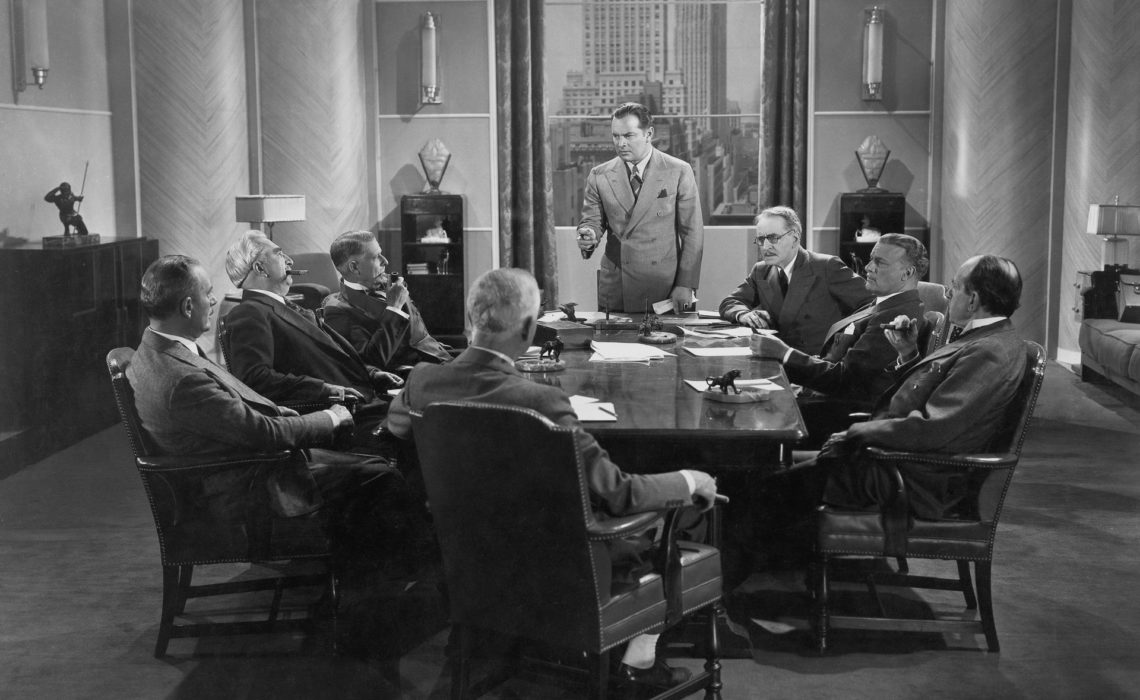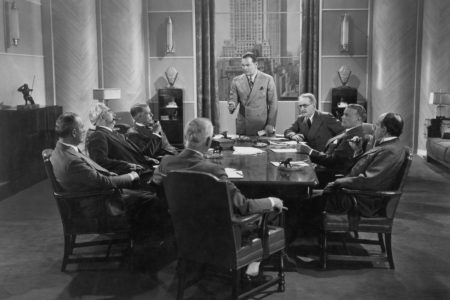
Not long ago, boardrooms up and down the corporate landscape were filled with fusty, grey and all but retired gentlemen who were “kicked upstairs” to the hallowed oak-paneled rooms as a reward for career achievements or gratitude for past favours done for certain shareholders or powerful chairmen. These grandees met periodically, were provided with complex financial information they barely understood or cared about, they were then urged to approve obscure resolutions including distribution of dividends, large bonuses and / or salary increments to executives.
It would have been unusual for the Board to discuss long-term strategies, closely question the senior executives on what they planned to do with the company, challenge their judgment on commercial issues, or say anything that might be construed as “not playing the game”. As long as the company made profit, the board of directors was supposed to leave things to the professional executives who knew what they were doing.
The whole Board of Directors meeting took just long enough to gently paddle towards a sumptuous lunch served on fine china plates and washed down with vintage wine, followed by port and cigars. Conversation over lunch would have been about the politics of the day, and retelling of past accomplishments in business or on the golf course. In many ways, the whole set up was reminiscent of a “gentlemen club”.
For his troubles, the typical director would be paid a handsome fee to make it worth his while to get out of bed that day. In fact, a high-profile aging businessman could look forward to a handful of directorships which would go a long way towards enhancing his pension scheme, thus keeping him in claret and caviar until he kicked the bucket or was wheeled off to an exclusive retirement home in a coastal town somewhere. In my youth, I worked for a company who held 4 board meetings each year. On the agenda of the 3rd meeting there was a standing item to discuss in what exotic location the 4th meeting should be held: the Bahamas, Florida, Hong Kong?
Save for a few boring hours of board meetings every few weeks, life was very pleasant indeed for a typical director, thank you very much.
Fortunately, this neat and convenient little arrangement has come to a juddering stop now. And thank goodness for that! Don’t get me wrong; I am happy for anyone having an easy life after retirement. But, not when their involvement is likely to cause a great deal of corporate harm through negligence and dereliction of duties in the Boardroom.
Legislation in most countries these days does not allow for such incompetence. Directors, even independent non-executive ones, are held liable as clearly as any of the errant executives they are meant to watch over. Not only do they have fiduciary responsibility towards the company on whose board they serve, but they are held responsible for any executive wrong doing and, if found negligent, they could, at a minimum, be barred from serving as company directors and at worst, face hefty fines or jail terms. No longer can they claim they were unaware of executive wrong doings since the law does not allow a plea of “ignorance” in mitigation.
Now directors have to actively and carefully participate in setting out strategies for the company executive to develop and submit business plans which the board must monitor progress against; they must set senior executives specific and clear goals they can be appraised against; they must also oversee the implementation of the business plans in a legal and compliant manner; they must challenge the executives on operational and financial matters; they must actively set a risk appetite for the company and monitor the resulting risk profile; they must also question the level of dividend distribution to shareholders to make sure the company is not drained of its lifeblood.
Recent Corporate Governance guidelines make it absolutely clear that the Board of Directors is not there to safeguard the interest of the shareholders (until recently this was the common misconception). In fact, the Board of Directors’ primary responsibility is to protect the interests of “The Company”, even from its own shareholders who can seriously harm the company’s long-term interests by being overbearingly greedy and self-serving. In short, the Board is collectively and individually responsible for the long-term well being of the company.
Being part of a large holding company, I serve on a number of subsidiary company boards and committees, as well as a couple of external entities and I can honestly say that work on any board of directors is more exacting and demanding than my day job. Far from being calories and booze filled events, board meetings I attend are very workmanlike heavy sessions, which start days earlier as submitted material has to be read and digested, where failure to do so would find you wanting amongst fellow directors. Sure lunch is provided but, minus the fine wine, caviar and cigars, where very often topics of conversations tend to be dominated by the business of the company, with the occasional chat about football, politics, etc.
So, should you have the privilege of being invited to join a board of directors, be flattered for a few minutes but then be very careful what you are letting yourself in for. Do your research about the company, its executives and members of the board of directors; make sure you can spare the time and you have the expertise to fulfil your directorship duties; if you are already employed you must get permission from your employers; read about the corporate laws and guidelines that govern company directorship in the country concerned; ask if you can look at previous board meeting minutes and papers to see how this board works; most of all, make sure you have no conflict of interest by serving on the board of this company.
Be sure you are ready for this awesome and important responsibility. You are going to join a mixed group of very keen-minded, business-active, and very-much-alive group of fellow directors who expect you to earn your fees by bringing your lifetime experiences, as well as hard work to scrutinise and challenge the workings of the company.
One thing I can assure of, you will not be bored in the Boardroom.



